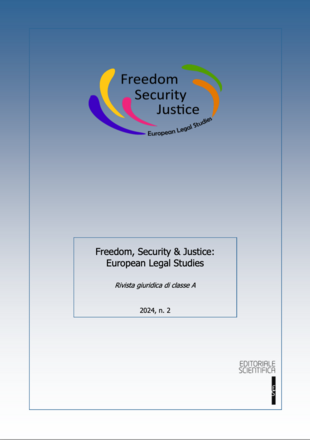
The article examines SLAPPs (Strategic Lawsuits Against Public Participation) through both human rights and private international law, in light of the 2024 EU Anti-SLAPP Directive (2024/1069/EU). It argues that while greater consistency in EU law would strengthen protection within Europe, SLAPPs are a global problem that ultimately require international cooperation.
As argued by the author, SLAPPs are legal actions—often for defamation, privacy breaches, or damages—used not to vindicate legitimate rights but to silence journalists, activists, and other voices engaged in matters of public interest. Even the threat of such proceedings can have a chilling effect on freedom of expression, leading to self-censorship and undermining democratic debate. The abusive intent of the plaintiff, rather than the legal merits of the case, typically defines a SLAPP, but proving this abuse remains a significant hurdle for defendants.
SLAPPs not only threaten media freedom but also endanger broader fundamental rights, including freedom of assembly and association. Activists are particularly vulnerable, facing a wider range of possible claims, from property damage to violations of public order laws. The absence of a clear legal definition and the diversity of forms SLAPPs can take complicates systematic regulation, underscoring the need for judges’ and legal professionals’ awareness of the phenomenon.
At the European level, freedom of expression is strongly protected under Article 10 ECHR and Article 11 of the EU Charter of Fundamental Rights. Building on this framework, the Anti-SLAPP Directive introduces minimum standards to protect public participation. Key measures include: early dismissal of manifestly unfounded claims, allowing third-party organizations to support defendants, requiring claimants to cover legal costs in abusive cases, and permitting courts to impose dissuasive penalties. As often reminded, the Directive only applies to cases with cross-border implications, and without complementary national action – as encouraged by the 2022 EU anti-SLAPP Recommendation - many cases risk remaining outside its scope.
From the perspective of private international law, fragmented jurisdictional rules and the possibility of forum shopping exacerbate the problem. While harmonization within the EU would be valuable, SLAPPs are a global phenomenon. Effective protection therefore requires stronger international cooperation, particularly through instruments of the Hague Conference on Private International Law, and a cultural shift towards recognizing and countering SLAPPs as threats to democracy and fundamental rights.
Tags: SLAPP Freedom of expression Media freedom Legal harassmentThe content of this article can be used according to the terms of Creative Commons: Attribution-NonCommercial 4.0 International (CC BY-NC 4.0) . To do so use the the wording "this article was originally published on the Resource Centre on Media Freedom in Europe" including a direct active link to the original article page.

